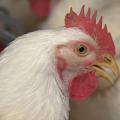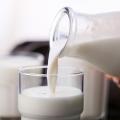Quail Feed Medications
Game bird feeds are available with several types of medications for preventing or treating diseases. The two most common medications added to feeds are coccidiostats and/or antibiotics.
Coccidiosis is a parasitic disease of the digestive tract. It is difficult to control by sanitation practices alone. The best prevention is to include a drug or coccidiostat in the feed. This coccidiostat is added to the feed at low levels and fed continuously. Some coccidiostats can be given at higher levels to treat the disease after the birds show symptoms. Before increasing the drug level, check with someone who is familiar with the proper use of the coccidiostat in question since some coccidiostats can be toxic at higher levels.
Feed growing birds a ration containing a coccidiostat from hatch until the last week before slaughter. Feed an unmedicated diet during this last week to assure that no drug residues remain in the tissues of the birds. This feeding of unmedicated diets prior to slaughter is recommended when using any dietary drug, regardless of whether the restriction is required or not.
As birds mature, they develop a resistance to coccidiosis if a controlled exposure to the parasite is allowed. Birds grown for breeder replacements are fed a coccidiostat until about 16 weeks of age. The medicated feed is then replaced with a feed not containing a coccidiostat. Spotty outbreaks of the disease can be controlled by including drugs in the water. Two coccidiostats with Food and Drug Administration (FDA) approval for use in game bird feeds are monensin sodium (Coban) and amprolium.
Antibiotics may also be added to some feeds. Antibiotics aid performance and maintain healthy birds. They are added at low (prophylactic) levels to prevent minor diseases and produce faster, more efficient growth. Higher (therapeutic) levels are usually given in water or injected into the bird. Examples of FDA approved antibiotics in game bird diets are bacitracin and penicillin.
Addition of bacitracin to game bird diets is recommended at the rate of 50 grams per ton as a preventative of ulcerative enteritis (quail disease). Higher levels in the diet is not recommended nor permitted by FDA. If higher levels are needed for treatment, it is best to give the antibiotic in the bird's drinking water. This practice is also more effective since sick birds will usually drink water but will not always consume feed. Including bacitracin in diets of all game birds is recommended to maintain healthy, productive birds.
When using any drug, whether the drug is or is not mixed with the feed, follow all warnings and instructions on the label. Always comply with all instructions that require a medication withdrawal period prior to bird slaughter or saving eggs for human consumption.
Additional information on feeding of game birds can be found in Feeding Quail.
Publications
News
RAYMOND, Miss. -- Mississippi’s agriculture industry remains vibrant with an overall production value estimated at $9 billion, despite a drop in row crop prices.
STARKVILLE, Miss. -- A federal raw milk testing mandate has been issued to address bird flu outbreaks in U.S. dairy herds.







